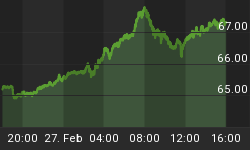Are we witnessing the end of a mercantilist, Keynesian financial system? Gustave Flaubert said "The future is the worst thing about the present." Gustave would have made a wonderful central banker. Who can read this and not feel that it is an apt description of the global financial situation? Despite all the high level assurances that matters are improving who can't help feel that more bad news lurks in the future. The political and financial classes are attempting to create a state of suspended animation based on a dread of what the future surely holds for their deficit & leverage heavy operating models. They seem to genuinely believe that the problems can be indefinitely postponed by further mercantilist, Keynesian debauchery in the form of even greater deficits and deeper currency devaluations. If only all life's problems could be managed this way.
For those of you unfamiliar with the term - in its current application, mercantilism is a policy of government intervention in foreign trade to try to create a positive balance of payments most often via currency devaluation. As for Keynesianism, at this stage in the financial crisis I doubt the concept of government deficit spending needs much introduction.
The tide has been going out for a few years now and we are beginning to see who has been swimming naked - this hackneyed phrase is a simpler way of saying that we are finally discovering what themes, managers, and sectors were actually just providing debt fueled beta while advertising alpha. The finance, insurance & real estate economy ( "FIRE") particularly real estate and most of what passes for investing by the financial industry come to mind immediately. In fact, a large part of the financial sector has been engaged in a business model that I have heard described as "picking up dimes in front of a moving steamroller. Leverage allows you to pick up lots of dimes but eventually the steamroller flattens you with ugly results for your investors."
Instead of relying on privatized gain and socialized losses as a modus operandi, I would encourage the FIRE economy to return to more fundamental models - seek out value, try to invest with a linkage to sectors/markets with demonstrable growth prospects, and if possible incorporate some low cost inflation hedging as insurance against continued central bank misbehavior.
Perhaps the reason for the foreboding in the west is that we are experiencing the simultaneous denouement of three powerful trends - central bank inflation/currency debasement activities, state sponsored mercantilism and demographic driven insolvency.
As states strive to create or maintain current account surpluses there is what amounts to a race to the bottom in the currency markets. Unfortunately it is a truism that few people win in a currency war - other than holders of real assets.
State debt service as a percent of tax revenues is already at high levels for most developed nations, yet interest rates are at historic lows. As state finances enter distress, they are forced to finance themselves at shorter durations creating roll-over risk. The combination of interest servicing issues and duration compression leaves them heavily exposed to even modest increases in interest rates. When rates rise, state revenues will be rapidly consumed by just the interest on servicing their debt, let alone funding day-to-day commitments.
And therein lies the issue. Our commitments are entering a high growth phase in the face of deteriorating demographics. The magnitude of our impending entitlement costs are barely on the radar. Layer on an absence of political support for a reduction in government spending and can some form of printing press default be far behind? Its certainly difficult to see how any combination of tax increases, economic growth or marginal adjustments to entitlements is going to close western funding gaps. The era of exponentially growing government borne by a linear productive economy is in the last gasps - the question is then how does it end? Current indications are with a default by the printing press to fund ballooning fiscal deficits.
If this is the case, and it looks increasingly likely, then the unvarnished truth is that we are living beyond our means and dishonestly passing the cost onto future generations. On that note I will leave you with the words of Herbert Hoover who prophetically said "Blessed are the young for they shall inherit the national debt".















